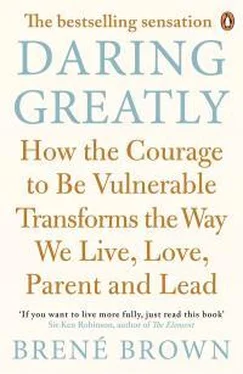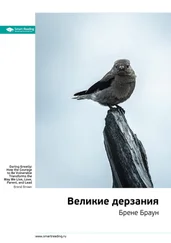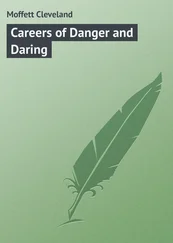The way I see it, 2010 was the year of the TEDxHouston talk, and 2011 was the year of walking the talk —literally. I crisscrossed the country speaking to groups ranging from Fortune 500 companies, leadership coaches, and the military, to lawyers, parenting groups, and school districts. In 2012, I was invited to give another talk at the main TED conference in Long Beach, California. For me the 2012 talk was my opportunity to share the work that has literally been the foundation and springboard for all of my research—I talked about shame and how we have to understand it and work through it if we really want to dare greatly.
The experience of sharing my research led me to write this book. After discussions with my publisher about the possibility of a business book and/or a parenting book, plus a book for teachers, I realized that there only needed to be one book because no matter where I went or with whom I was speaking, the core issues were the same: fear, disengagement, and yearning for more courage.
My corporate talks almost always focus on inspired leadership or creativity and innovation. The most significant problems that everyone from C-level executives to the frontline folks talk to me about stem from disengagement, the lack of feedback, the fear of staying relevant amid rapid change, and the need for clarity of purpose. If we want to reignite innovation and passion, we have to rehumanize work. When shame becomes a management style, engagement dies. When failure is not an option we can forget about learning, creativity, and innovation.
When it comes to parenting, the practice of framing mothers and fathers as good or bad is both rampant and corrosive—it turns parenting into a shame minefield. The real questions for parents should be: “Are you engaged? Are you paying attention?” If so, plan to make lots of mistakes and bad decisions. Imperfect parenting moments turn into gifts as our children watch us try to figure out what went wrong and how we can do better next time. The mandate is not to be perfect and raise happy children. Perfection doesn’t exist, and I’ve found that what makes children happy doesn’t always prepare them to be courageous, engaged adults. The same is true for schools. I haven’t encountered a single problem that isn’t attributed to some combination of parental, teacher, administrative, and/or student disengagement and the clash of competing stakeholders vying to define one purpose.
I have found that the most difficult and most rewarding challenge of my work is how to be both a mapmaker and a traveler. My maps, or theories, on shame resilience, Wholeheartedness, and vulnerability have not been drawn from the experiences of my own travels, but from the data I’ve collected over the past dozen years—the experiences of thousands of men and women who are forging paths in the direction that I, and many others, want to take our lives.
Over the years I’ve learned that a surefooted and confident mapmaker does not a swift traveler make. I stumble and fall, and I constantly find myself needing to change course. And even though I’m trying to follow a map that I’ve drawn, there are many times when frustration and self-doubt take over, and I wad up that map and shove it into the junk drawer in my kitchen. It’s not an easy journey from excruciating to exquisite, but for me it’s been worth every step.
What we all share in common—what I’ve spent the past several years talking to leaders, parents, and educators about—is the truth that forms the very core of this book: What we know matters, but who we are matters more . Being rather than knowing requires showing up and letting ourselves be seen. It requires us to dare greatly, to be vulnerable. The first step of that journey is understanding where we are, what we’re up against, and where we need to go. I think we can best do that by examining our pervasive “Never Enough” culture.
Chapter 1
Scarcity: Looking Inside Our Culture of “Never Enough”
After doing this work for the past twelve years and watching scarcity ride roughshod over our families, organizations, and communities, I’d say the one thing we have in common is that we’re sick of feeling afraid. We want to dare greatly. We’re tired of the national conversation centering on “What should we fear?” and “Who should we blame?” We all want to be brave.
YOU can’t swing a cat without hitting a narcissist.”
Granted, it wasn’t my most eloquent moment onstage. It also wasn’t my intention to offend anyone, but when I’m really fired up or frustrated, I tend to revert back to the language instilled in me by the generations of Texans who came before me. I swing cats, things get stuck in my craw, and I’m frequently “fixin’ to come undone.” These regressions normally happen at home or when I’m with family and friends, but occasionally, when I’m feeling ornery, they slip out onstage.
I’ve heard and used the swinging-cat expression my entire life, and it didn’t dawn on me that more than a few of the thousand members of the audience were picturing me knocking over self-important folks with an actual feline. In my defense, while responding to numerous e-mails sent by audience members who thought animal cruelty was inconsistent with my message of vulnerability and connection, I did learn that the expression has nothing to do with animals. It’s actually a British Navy reference to the difficulty of using a cat-o’-nine-tails in the tight quarters of a ship. I know. Not so great either.
In this particular instance, the cat-swinging was triggered when a woman from the audience shouted out, “The kids today think they’re so special. What’s turning so many people into narcissists?” My less-than-stellar response verged on smart-alecky: “Yeah. You can’t swing a cat without hitting a narcissist.” But it stemmed from a frustration that I still feel when I hear the term narcissism thrown around. Facebook is so narcissistic. Why do people think what they’re doing is so important? The kids today are all narcissists. It’s always me, me, me. My boss is such a narcissist. She thinks she’s better than everyone and is always putting other people down.
And while laypeople are using narcissism as a catchall diagnosis for everything from arrogance to rude behavior, researchers and helping professionals are testing the concept’s elasticity in every way imaginable. Recently a group of researchers conducted a computer analysis of three decades of hit songs. The researchers reported a statistically significant trend toward narcissism and hostility in popular music. In line with their hypothesis, they found a decrease in usages such as we and us and an increase in I and me.
The researchers also reported a decline in words related to social connection and positive emotions, and an increase in words related to anger and antisocial behavior, such as hate or kill . Two of the researchers from that study, Jean Twenge and Keith Campbell, authors of the book The Narcissism Epidemic , argue that the incidence of narcissistic personality disorder has more than doubled in the United States in the last ten years.
Relying on yet another fine saying from my grandmother, it feels like the world is going to hell in a handbasket.
Or is it? Are we surrounded by narcissists? Have we turned into a culture of self-absorbed, grandiose people who are only interested in power, success, beauty, and being special? Are we so entitled that we actually believe that we’re superior even when we’re not really contributing or achieving anything of value? Is it true that we lack the necessary empathy to be compassionate, connected people?
If you’re like me, you’re probably wincing a bit and thinking, Yes. This is exactly the problem. Not with me, of course. But in general … this sounds about right!
Читать дальше






![Брене Браун - Вопреки. Как оставаться собой, когда всё против тебя [litres]](/books/436389/brene-braun-vopreki-kak-ostavatsya-soboj-kogda-v-thumb.webp)





